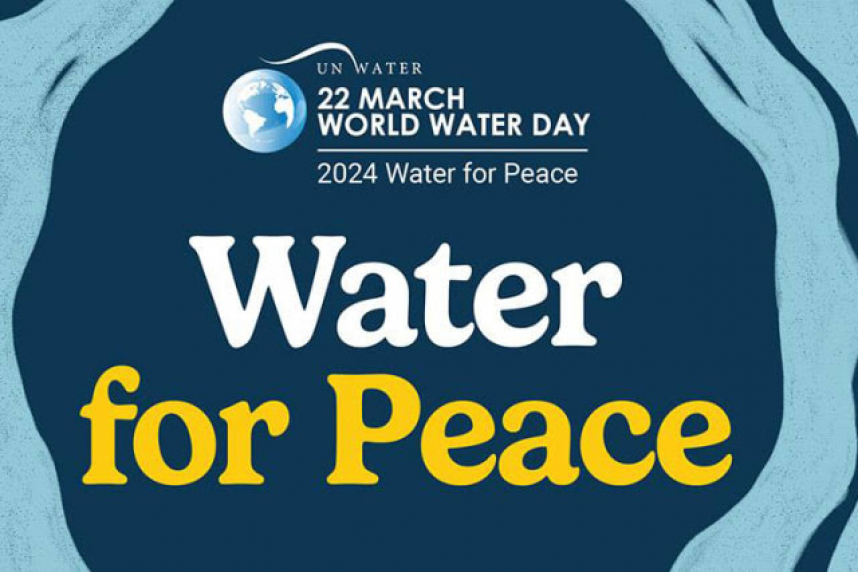
The theme of World Water Day 2024 is ‘Water for Peace’, which focuses on the critical role water plays in the stability and prosperity of the world.
Water can create peace or spark conflict
When water is scarce or polluted, or when people have unequal or no access, tensions can rise between communities and countries.
More than 3 billion people worldwide depend on water that crosses national borders. Yet, out of 153 countries that share rivers, lakes, and aquifers with their neighbors, only 24 countries report having cooperation agreements for all their shared water.
As climate change impacts increase, and the global population grows, we must unite around protecting and conserving our most precious resource.
By working together to balance everyone’s human rights and needs, water can be a stabilizing force and a catalyst for sustainable development.
World Water Day is a United Nations (UN) observance coordinated by UN-Water. Every year, it raises awareness of a major water-related issue and inspires action to tackle the water and sanitation crisis.
This year’s Task Force of UN-Water Members and Partners is coordinated by the UN Economic Commission for Europe (UNECE) and UN Educational, Scientific and Cultural Organization (UNESCO).
Creating a positive ripple effect
When we cooperate on water, we create a positive ripple effect – fostering harmony, generating prosperity, and building resilience to shared challenges.
We must act upon the realization that water is not only a resource to be used and competed over – it is a human right, intrinsic to every aspect of life.
This World Water Day, we all need to unite around water and use water for peace, laying the foundations of a more stable and prosperous tomorrow.
Key messages for World Water Day 2024
- Water can create peace or spark conflict. When water is scarce or polluted, or when people struggle for access, tensions can rise. By cooperating on water, we can balance everyone’s water needs and help stabilize the world.
- Prosperity and peace rely on water. As nations manage climate change, mass migration, and political unrest, they must put water cooperation at the heart of their plans.
- Water can lead us out of crisis. We can foster harmony between communities and countries by uniting around the fair and sustainable use of water – from United Nations conventions at the international level to actions at the local level.